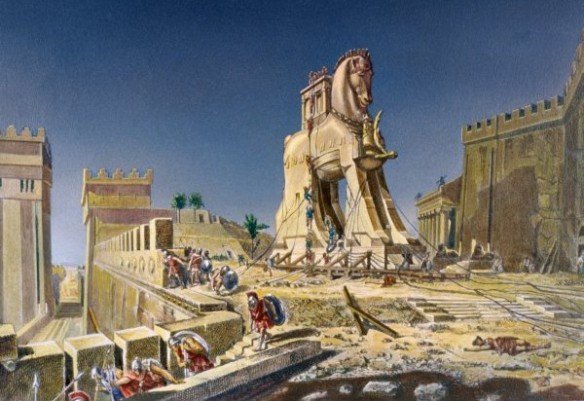
I wasn’t around M* at that time. However I noticed that suddenly Jeff G.’s post has become very popular. And I don’t know what has prompted that. This post is so folks can comment.
From my reading of the post, Jeff G. had recently come back to the faith after abandoning it eight years earlier due to intellectual “issues.” He clarified that intellectuals aren’t necessarily more intelligent than others, but rather they prize the culture of critical discourse (CCD). For those not familiar with CCD, Jeff G. provided the following quote:
“[CCD] insists that any assertion – about anything, by anyone – is open to criticism and that, if challenged, no assertion can be defended by invoking someone’s authority. It forbids a reference to a speaker’s position in society (or reliance upon his personal character) in order to justify or refute his claims… Under the scrutiny of the culture of critical discourse, all claims to truth are in principle now equal, and traditional authorities are now stripped of their special right to define social reality… The CCD … demands the right to sit in judgment over all claims, regardless of who makes them…
“CCD requires that all speakers must be treated as sociologically equal in evaluating their speech. Considerations of race, class, sex, creed, wealth, or power in society may not be taken into account in judging a speaker’s contentions and a special effort is made to guard against their intrusion on critical judgment. The CCD, then, suspects that all traditional social differentiations may be subversive of reason and critical judgment and thus facilitate a critical examination of establishment claims. It distances intellectuals from them and prevents elite views from becoming an unchallenged, conventional wisdom.” (Against Fragmentation: The Origins of Marxism and the Sociology of Intellectuals, 30-31)
Surely Intellectuals have a problem with Prophets?
Jeff next clarified that those “intellectuals” who value the culture of critical discourse don’t so much have a problem with prophecy. It’s possible to have a worldview where prophecy is just one of the many natural phenomena. So intellectuals don’t have a problem with prophets because they prophesy, but because the prophet has priesthood authority. This priesthood authority puts the prophet or priesthood leader in charge, giving them an authority that not all speakers have.
Applying this to a hypothetical case, a woman might be willing to grant that her Bishop can receive revelation. However she might still reject his authority to have revelation on her behalf, because she believes she is the Bishop’s equal and should be treated equally, that her revelation regarding herself should be considered and even held more important than the revelation some other individual (e.g., the Bishop) might claim to have had on her behalf.
The Four Trojan Horses
Jeff G. submits that the four Trojan Horses of Mormon intellectuals who value the culture of critical discourse are:
- Overemphasizing the importance of personal revelation.
- Overemphasizing the importance of “thus saith the Lord”.
- Overemphasizing the importance of church history.
- Overemphasizing the fallibility of prophets.
I’m likely going to mangle these, but I think the traps Jeff G. describes are:
Personal Revelation
Everyone has the right to personal revelation. Just because some prophet or ecclesiastical leader had revelation doesn’t mean I have to heed their revelation. I have a right to my own revelation. I am equal to any of them. And I am my own stewardship, so clearly I have a right to revelation for my own life, which would be pre-eminent over any outside guidance or command.
Parsing the Scriptures to Identify the bits actually attributable to “The Lord”
The scriptures may be canon, but when taken in context, we can see that many of these verses are not applicable. Entire chapters and books are wholly irrelevant. I only need to pay attention to the parts where the Lord, Himself, was actually giving commands. And when I do that, the entirety of the pertinent scripture record can be distilled into a thin pamphlet…
Church History is Important
Just as I can reduce the part of scripture that matters to a small pamphlet, we can clearly see that historical context renders most of Church History irrelevant to our modern lives. It is critical that we understand all the details of Church History so we can best understand how completely irrelevant and downright puerile or even abusive so much of our “heritage” actually is.
Prophets are Fallible
They just are. And this is why I don’t have to honor them or pay heed to what they said.
Discussion?
So if I understood Jeff G. correctly (and I may have grossly misunderstood), the trap of the Mormon “intellectual” is valuing their own inclination (aka revelation) more than any outside guide and devaluing sciptures, sacred history, and prophetic counsel.
I’ll be fascinated to know if I got any of this even close to right and what it is about Jeff G.s original post that is attracting thousands upon thousands of views.
Come now, and let us reason together, saith the LORD…[ref]Isaiah 1:18[/ref]